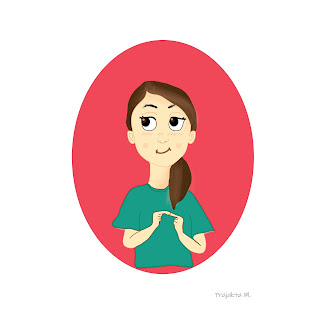Mindfulness
The Journey from Mind full to Mindful
My whole perspective of seeing a life changed after my first deep-sea dive. Our mind is like the ocean. It is up to us whether we want to end up with stormy waves by losing control over our mind or go deep down with the feeling of gratitude for being alive.
There are so many thoughts popping up in our minds when we do some task. These thoughts are generally about something we stress more in life, like the future, relationships, problems, fears, and experiences. Have you ever thought about which thoughts frequently appear in your mind and why?
We try to skip a few thoughts to get rid of them. And just run away from disturbing thoughts.
Skipping a problematic thought does not work. We need to think for a while about its cause. We need to think about how we are dealing with it and how we must get rid of it. Have we ever tried to search about how emotions changed across time and place and who named them at first?
A cultural historian, Tiffany Smith, researched the history of human emotions and presented some facts in her ted talks video.
Following are a few of them:
- Sometimes we are not even clear about emotions. Our emotional life is, based on a handful of basic six emotions (happy, sad, afraid, disgusted, angry, surprised).
- In the 12th century, some troubadours did not see yawning caused by boredom. But as a symbol of the deepest love. Initially, boredom was the time for self-improvement.
- There are so many different names for emotions.
- Gezelligheid – social and relaxed situation (being with friends)
- Amae (used in Japan) – handing over the responsibility of your life to someone else.
- Learning new words will help attune us to more finely-grained aspects of our inner lives. They remind us how powerful the connection is between what we think and feel.
- Today, we celebrate happiness. Authors of the 16th century wrote books to encourage sadness in readers by giving reasons to be disappointed.
Have you ever thought about what is your purpose in life?
After reading such a question, you might say it is about becoming successful in your chosen field and fulfilling your personal and family needs. We think all of these are enough to be happy.
Our culture is so obsessed with happiness that our definition of happiness is a success, money, good relations, and materialism. But in this case, happiness will come and go away. But if your happiness is also equally based on the purpose of your life, then you will feel happy for longer.
So now, can we find our purpose in life?
It can be that we are already willing to do for someone else. It can be a contribution to the world. It can be an attempt to connect people, help underprivileged, senior citizens or sick people, inventions or ideas create change, bring positive changes in others, motivate others, or be a problem solver for someone. That purpose must bring eternal joy to your soul.
Every moment in our life, we tell stories to ourselves and the people around us. We usually tell stories to ourselves in a negative way. We say ourselves that our life is getting worse day by day instead of saying things will be better soon.
Kate Bowler, a divinity professor, re-examined her perspective on the prosperity gospel: the belief that good things happen to good people.
In her ted talks video, she said that we all want reasons to predict whether our hard work will pay off, whether our love and support will always make our partner happy. Why do we want reasons for our sufferings?
Though she was diagnosed with stage IV cancer, she learned to live without reason. She believes that in the darkness, even there, there will be beauty and love.
When life hits you hard 😂
Tell yourself stories of how good and bad experiences changed you, what you gained and what you lost. Sometimes we criticize ourselves about things that go wrong in our lives. After all, we all struggle, so we must embrace our painful memories. Be a problem solver not just for others but also for yourself. We must give more importance to the bond with others than our over-expectations.
So have you found your purpose yet?
Trying to find your purpose is not enough. The challenge for our generation is creating a world where everyone has a sense of purpose.
- Mark Zuckerberg
We all are storytellers in our life.
- Emily Smith





Comments
Post a Comment